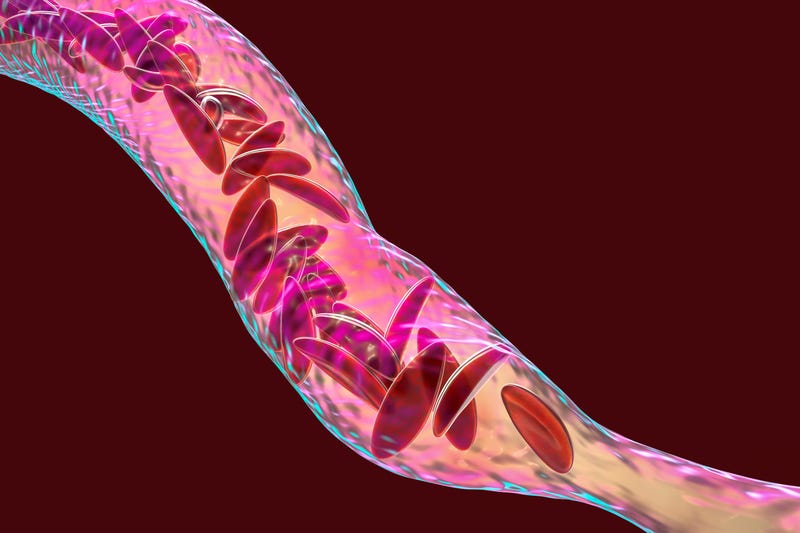
CHICAGO (WBBM NEWSRADIO) -- There is a new effort in Chicago to treat pain from sickle cell disease.
Researchers at the University of Illinois Chicago will lead a $7.1 million, five-year national study to determine the effectiveness of acupuncture and guided relaxation for people with chronic pain from sickle cell disease, or SCD.
Ardith Doorenbos, a UIC professor of biobehavioral nursing science, will lead a team of researchers on the National Institutes of Health grant that is part of its Helping to End Addiction Long-term Initiative, or NIH HEAL. The initiative aims to improve prevention and treatment strategies for opioid misuse and addiction and to enhance pain management.
“The opioid crisis in the U.S. is very severe, and some states have had more deaths from opioid overdoses than from car accidents. We’re trying to do what we can to reduce opioid use in the sickle cell disease population who have high pain levels and opioid use. If we can find ways to manage their pain and get them off opioids, it’s going to be fabulous,” Doorenbos said.
Sickle cell disease affects as many as 100,000 people in the U.S., and at least 20 million worldwide, according to researchers. The disease is an inherited defect of the hemoglobin that causes the red blood cells to become crescent-shaped. These cells can lyse and obstruct small blood vessels, depriving the body’s tissues of oxygen. The disease can cause extreme pain and damage the lungs, heart, kidneys and liver. Stroke and other complications can be life-threatening.
In the U.S., the genetic disorder strikes mainly African Americans. Dr. Robert Molokie, UIC assistant clinical professor of medicine and co-principal investigator on the project, explained there are many things that can cause issues and trigger a pain crisis for those with SCD, including stress and even changes in the weather.
Pain is SCD’s hallmark symptom and the leading cause of almost 200,000 annual emergency department admissions. It is also the leading cause of hospitalization for those with SCD, with an estimated $2.4 billion in annual U.S. health care costs, according to the American Journal Hematology. Pain, both acute and chronic that is so severe that it requires opioids to attempt to keep it to tolerable levels, is a constant companion to those living with SCD.
For the study, 360 SCD patients will receive acupuncture twice a week for five weeks. Also, patients will be asked to use guided relaxation techniques at least once a day.
Both acupuncture and guided medication were proven effective in pilot studies on SCD pain management.
The researchers will be working with patients with sickle cell disease in the fall of 2021, pending additional approvals from the UIC Institutional Review Board.

